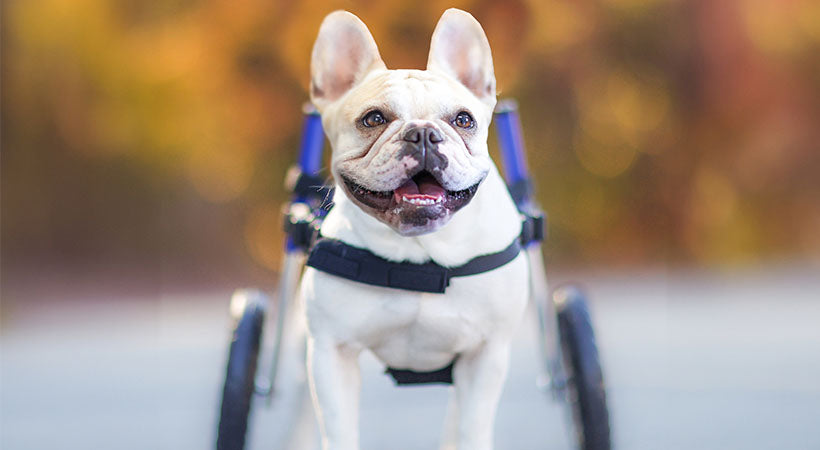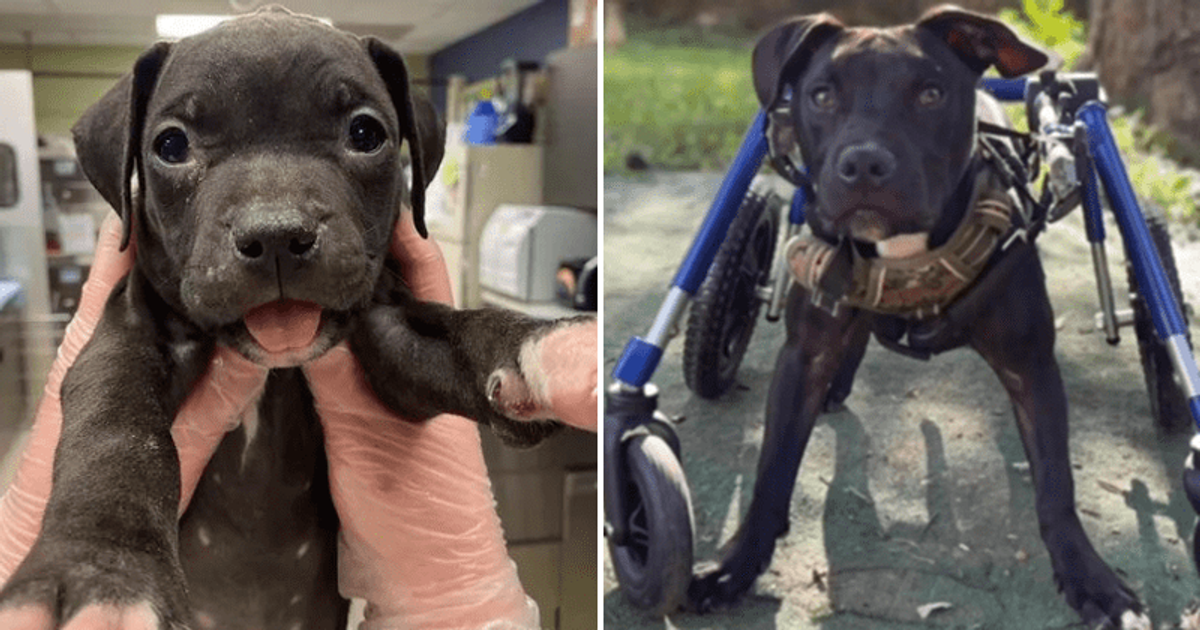Sit Down Dog Wheelchairs

Empowering Your Pup: Helpful Tips for Using a Dog Wheelchair
Dog wheelchairs, also known as canine carts, are specially designed devices that can help dogs with mobility issues to move around easier and more comfortably. These devices come in different sizes and types to accommodate dogs of various breeds and sizes. The decision to get your dog a wheelchair, is an investment in your dog's continued mobility, comfort, and improving their quality of life. We're here to guide you through the process, and make sure that you (and your dog) feel supported every step if the way.
Why do dogs use wheelchairs?

One of the main benefits of using a dog wheelchair is that it can significantly improve a dog's quality of life. For dogs that have lost the use of their hind legs due to injury, illness, or old age, a wheelchair can help them to continue to enjoy activities such as going for walks, playing, and exploring their environment.
Plenty of dogs who use a wheelchair have paralyzed back legs, but not every dog. Some pets will use a cart because they need a little extra support – it could be because their hips hurt from arthritis or maybe their legs have gotten a bit weaker and need a little extra help to stand on all four legs.
In addition to helping dogs with mobility issues, dog wheelchairs can also provide several health benefits. By providing support and reducing the stress on the dog's joints and muscles, a wheelchair can help alleviate pain and discomfort associated with conditions such as arthritis, hip dysplasia, and spinal cord injuries. Whatever the reason, if a dog is struggling to stand or walk without a helping hand, a wheelchair is a great way to improve a dog’s mobility and keep them active.
Tips for a Smooth Transition
Find the Proper Fit
Before you start, check the fit of the wheelchair. A comfortable fit is incredibly important. If the wheelchair isn’t offering support where your dog needs it, your dog may be reluctant to move. Quick things to look for:
1. In the rear, is the black knuckle sitting in the center of your dog’s hip?
Your dog should sit comfortably in the wheelchair, if they’re sitting above or below the frame they aren’t being supported. Check the wheelchair height and confirm that the leg rings aren’t too tight.
2. Does the wheelchair frame run parallel to the ground? It should be level and run through the center of your dog’s body.
You may need to adjust the harness if the extenders are angling upwards or downwards. Pointing up? Loosen the blue strap and tighten the red strap. Pointing down? Loosen the red strap and tighten the blue strap until the bar rises up to where it should be.
You’re not in this alone, our wheelchair experts are here to guide you through the entire process. The Walkin’ Pets team is happy to answer any questions you have and help walk you through how to adjust your dog’s cart. We’re available for one-on-one support over FaceTime, phone, or email.
Dog Wheelchair Training

It’s important that you introduce the wheelchair to your dog at their own pace. How long it takes a dog to get to using a wheelchair will depend on the dog. Once they are fitted to their new cart, most dogs realize very quickly that the wheelchair is helping them. They will feel supported for the first time and will often begin to walk right away.
Dogs that tend to be more tentative or nervous in new situations may need a little coaxing to take their first step. Remember, there is a learning curve for both you and your dog. Give yourselves both a chance to adjust to using a cart. Training your dog to use a wheelchair begins with helping them feel comfortable and safe. If your dog is a bit anxious, place the wheelchair on the floor and walk away. Let your dog get used to it being around. This will give your dog a chance to get comfortable with it. When your dog walks over to the wheelchair and sniffs it, praise them and give them a treat as a reward. This can help a dog form a positive association with their new cart.
When your dog is ready begin with putting the wheelchair harness on them, this fits very similarly to a walking harness, so most dogs are very used to this sensation. The next step will be getting them into the cart for their first wheelchair walk. Go slow, every dog’s experience will be very different. Some dogs may only use their wheelchair for a few minutes on that first walk, while others may be ready to go for a walk around the neighborhood. Either way, keep that first session under 15 minutes. Even if your dog wants to keep going, take them out and give them a break. That first walk will be tiring, and you don’t want to overdo it the first time. Not only does this give your dog a chance to rest, but it will get them excited for their next walk.
Encouraging your dog to take its first steps
Using a wheelchair isn’t always intuitive for a dog, and that’s okay. It just means your dog needs you to encourage them. There are many ways you can motivate your dog, but ultimately it means your dog needs reassurance from you. For food-motivated pups, treats are a great way to get your dog to take their first couple of steps. Does your dog love to play with kids? Chase a ball? Get a new toy? Go on a walk? Every dog is different, find whatever gets your dog excited and bring that with you the first time they try out their wheelchair. Most importantly, try to make it a fun experience! This should be exciting for you and your pup.
We’re here for you
Getting your dog a wheelchair is a commitment to your dog’s well-being and will significantly enhance your dog’s life, and we're here to support you every step of the way. If you have any questions about your dog’s new Walkin’ Wheels wheelchair, please don't hesitate to reach out. Your dog's comfort and happiness are our top priorities, and we look forward to assisting you on this journey.









